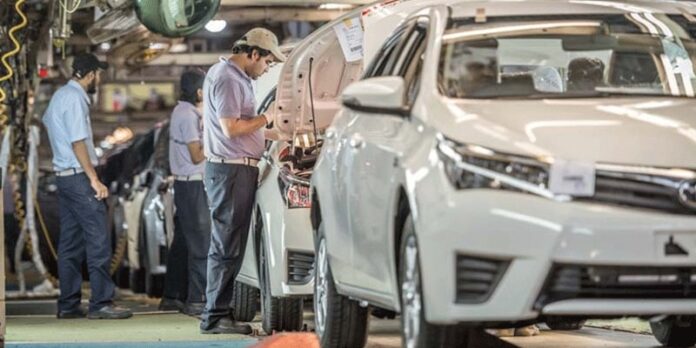After months of gridlock, Pakistan’s auto industry has finally shown signs of recovery in 3QFY25. Indus Motor Company saw a significant rebound in earnings, leading the sector’s recovery, while Honda Atlas Cars Pakistan posted mixed results with strong sales growth tempered by a tax reversal, reported brokerage house AKD Research.
Indus Motor Company reported a 29% YoY increase in net profit, reaching PkR 5,723 million, a recovery from last year’s challenges such as supply-chain disruptions and factory downtime. The company saw a 40% YoY increase in vehicle deliveries, rising from 6,503 units in 3QFY24 to 9,077 units this quarter. This volume growth contributed to a 31% YoY increase in revenues, which reached PkR 61,760 million, while gross margins held steady at 14.5%. Additionally, warranty-related expenses fell by 58% YoY, benefiting from improvements in production and reduced issues from last year’s setbacks.
For the nine months to date, Indus’s earnings per share (EPS) increased by 67% YoY, reaching PkR 199.50. The company has also proposed an interim dividend of PkR 44.00, bringing total payouts this fiscal year to PkR 120.00, or a 6% yield. Analysts have set a target price of PkR 3,350/share for December 2025, reflecting strong performance expectations.
Honda Atlas Cars Pakistan, in comparison, posted solid sales growth, with 5,653 vehicles sold, a 12% YoY increase. Quarterly revenue reached PkR 26,772 million, up 7% YoY, driven by improved input prices for steel and a better sales mix, especially from higher-margin Civic models. Gross margins improved to 9.8%, reflecting the positive sales mix.
However, Honda’s net profit decreased by 17% YoY, to PkR 1,131 million, due to a one-time PkR 618 million tax reversal in the previous year that did not recur. Despite this, the company benefited from a 92% YoY decrease in finance costs, which helped offset the earnings decline. Honda has proposed a final dividend of PkR 6.00, offering a 1.2% yield based on projected earnings.
Both Indus and Honda are positioned to benefit from the broader recovery in Pakistan’s auto industry, which is showing signs of growth following a difficult period. As supply chains recover and production ramps up, the sector is expected to continue improving.




